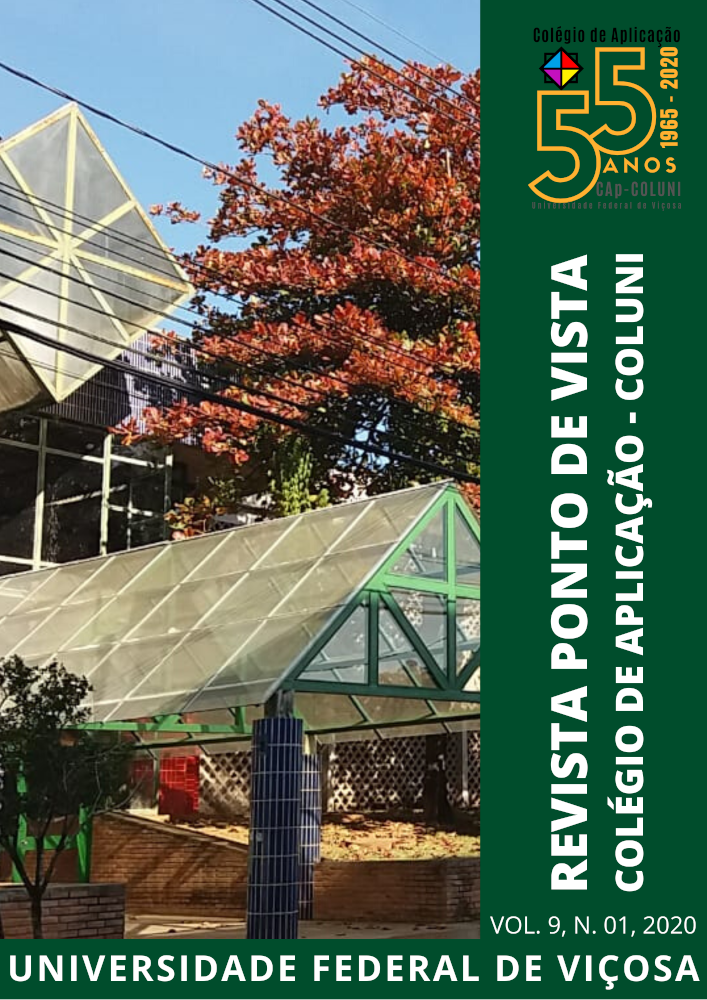Estudos geográficos sobre a Antártica: geopolítica, solos, relevo e clima
DOI:
https://doi.org/10.47328/rpv.v9i1.10237Palavras-chave:
Geopolítica Antártica; permafrost; geleiras.Resumo
Este trabalho tem como objetivo compartilhar informações e reflexões sobre as pesquisas científicas geográficas realizadas na Antártica. A abordagem está fundamentada na visão de geógrafos que realizaram expedições antárticas como membros do Núcleo de Pesquisas Terrantar/UFV. Abordou-se sobre algumas possibilidades de regionalização da Antártica. Apesar de ser um território internacional destinado a paz e ciência, existem disputas geopolíticas. Os estudos sobre Geomorfologia possibilitam o monitoramento da dinâmica dos glaciares e que se faça reconstruções paleoambientais. Informações sobre os solos são importantes para registros de contaminações ambientais, monitoramento do permafrost, e auxílio na interpretação das paisagens exuberantes e cheias de mistérios. Análises climáticas nas sensíveis paisagens Antárticas são relevantes para melhor compreensão das mudanças climáticas. Massas de ar e correntes marítimas oriundas do continente influenciam nos regimes térmicos e precipitações na América do Sul. Estes conteúdos tem grande potencialidade de utilização no ensino de Geografia, podendo tornar as aulas mais atrativas e estimulantes.
Downloads
Referências
ANDRADE, I.O. et al. O Brasil na Antártica: A Importância científica e Geopolítica do Proantar no Entorno Estratégico Brasileiro. Brasília: IPEA, 2018.
ANDRE, M. F. Do periglacial landscapes evolve under periglacial conditions? Geomorphology, v. 52, n. 1–2, p. 149–164, 2003.
BARSCH, D. Periglacial geomorphology in the 21st century. Geomorphology, v. 7, n. 1–3, p. 141–163, 1993.
BOCKHEIM, J. G. Soil-Forming Factors in Antarctica. In: BOCKHEIM, J. G. (Ed.). . The soils of Antarctica. 1. ed. Switzerland: Springer International Publishing, 2015. p. 5–20.
CAMPBELL, I. B.; CLARIDGE, G. G. C. Antarctica: soils, weathering processes and environ¬ment. p. 368pp, 1987.
COPLAND, L., Classification of ice masses. In: SHRODER, J., GIARDINO, R., HARBOR, J. (Eds.), Treatise on Geomorphology. Academic Press, San Diego, CA, vol. 8, Glacial and Periglacial Geomorphology, pp. 45–52, 2013.
DAHER, M. et al. Ornithogenic soils on basalts from maritime Antarctica. Catena, v. 173, n. March 2018, p. 367–374, 2019.
DELPUPO, C. S. et al. Soil formation in Seymour Island, Weddell Sea, Antarctica. Geomorphology, p. 1–13, 2014.
FRANCELINO, M. R. et al. Geomorphology and soils distribution under paraglacial conditions in an ice-free area of Admiralty Bay, King George Island, Antarctica. Catena, v. 85, n. 3, p. 194–204, 2011.
FRENCH, H. M. The Periglacial Enviroment. 3. ed. Chichester: John Wiley & Sons Ltd, 2007.
GANDRA, R.M. 2009. O Brasil e a Antártida: ciência e geopolítica. Geografias. Belo Horizonte 05(2) 65-74 julho-dezembro de 2009.
GUERRA, M. B. B. et al. Post-fire study of the Brazilian Scientific Antarctic Station: Toxic element contamination and potential mobility on the surrounding environment. Microchemical Journal, v. 110, p. 21–27, 2013.
GUTIERREZ, E. M. Geomorfología. Madrid: Pearson Educación, SA, 2008.
GUTIÉRREZ, F.; GUTIÉRREZ, M. Periglacial Landforms. Landforms of the Earth. 1. ed. [S.l.]: Springer International Publishing, 2016. p. 221–236.
HUGGETT, R. Glacial and Glaciofluvial Landscapes. Fundamentals of Geomorphology. 2. ed. [S.l.]: Routledge, 2006. p. 246–276.
IUSS WORKING GROUP WRB. World Reference Base for Soil Resources. International soil classification system for naming soils and creating legends for soil maps. Rome: World Soil Resources Reports No. 106. FAO, v.43, 2014.
LOPES, D.V. et al. Solos e Evolução da Pai¬sagem em Ambiente Periglacial na Península Barton, Antártica Marítima. Geography Department University of São Paulo, v. 0, n. spe, p. 259, 27 jun. 2017.
LOPES, D.V. et al. Solos de basalto da Antártica: implicações paleoclimáticas ao longo de uma sequência climática. REDE - Revista Eletrônica do PRODEMA, Fortaleza, v. 13, n. 1, p. 7-18, dez. 2019. ISSN 1982-5528.
LOPEZ-MARTINEZ, J. et al. Periglacial processes and landforms in the South Shetland Islands (northern Antarctic Peninsula region). Geomorpholo¬gy, v. 155–156, p. 62–79, 2012.
MACHADO, M. R. et al. Paisagens polares não glaciais (Proglacial, Paraglacial e Periglacial): Revisão de conceitos e contribuições da pesquisa pedogeomorfológica brasileira. Revista Brasileira de Geomorfologia, v. 20, n. 3, p. 603–622, 2019.
MICHEL, R.F.M. et al. Ornithogenic Gelisols (Cryosols) from maritime Antarctica; pedogenesis, vegetation, and carbon studies. Soil Science Society of America Journal, v. 70(4), n. October, p. 1370–1376, 2006.
O’NEILL, T. A.; AISLABIE, J.; BALKS, M. R. Human Impacts on Soils. In: BOCKHEIM, JAMES G. (Ed.). The soils of Antarctica. 1. ed. Switzerland: Springer International Publishing, 2015. p. 281–303.
PEREIRA, T. T. C. et al. Genesis, mineralogy and ecological significance of ornithogenic soils from a semi-desert polar landscape at Hope Bay, Antarctic Peninsula. Geoderma, v. 209–210, p. 98–109, 2013.
SCHAEFER, C.E.G.R. et al. Penguin activity modify the thermal regime of active layer in Antarctica: a case study from Hope Bay. Catena, v. 149, p. 582–591, 2017.
SIMAS, F.N. et al. Ornithogenic cryosols from Maritime Antarctica: Phosphatization as a soil forming process. Geoderma, v. 138, n. 3–4, p. 191–203, 2007.
SIMAS, F.N. et al. Clay-sized minerals in permafrost-affected soils (Cryosols) from King George Is¬land, Antarctica. Clays and Clay Minerals, v. 54, n. 6, p. 721–736, 2006.
SIMAS, F.N. et al. Soils of the South Orkney and South Shetland Islands, Antarctica. In: BOCKHEIM, J. G. (Ed.). . The soils of Antarctica. 1. ed. Switzerland: Springer International Publishing, 2015. p. 227–273.
TATUR, A.; MYRCHA, A. Ornithogenic soils on King George Island, South Shetland Islands (Ma¬ritime Antarctic Zone). Polish Polar Research, v. 5, n. 1–2, p. 31–60, 1984.
WRIGHT, A.P. et al. Antarctica at the Last Glacial Maximum, deglaciation and the Holocene. In: FLORINDO F. AND SIEGERT, M. (Ed.) Antarctic Climate Evolution, Elsevier. pp. 531–570, 2009.
Downloads
Publicado
Como Citar
Edição
Seção
Licença
POLITICA DE ACESSO LIVRE
A revista oferece acesso livre imediato ao seu conteúdo, seguindo o principio de disponibilizar gratuitamente o conhecimento científico ao público e proporcionar a democratização do conhecimento.
A Revista se reserva o direito de efetuar nos originais alterações de ordem normativa, ortográfica e gramatical, com vistas a manter o padrão culto da língua, respeitando, porém, o estilo dos autores.









